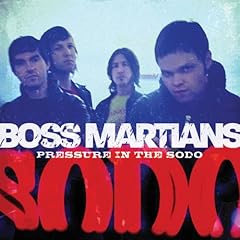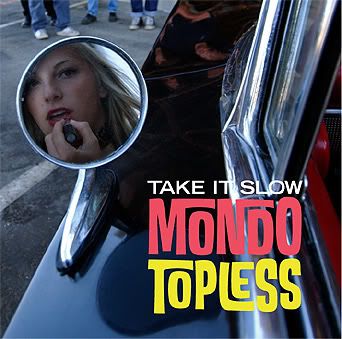
Frozen Ropes and Dying Quails
Yep Roc
I'm not a sports fan. Very few people I know who are into music are. I've got an obsession with road cycling, but that's so weird and nerdy enough that it's just odd to most people I know. So I have sports heroes: Indurain, Anquetil, Merckx, McEwan, Pantani, and a score of other names that most of you never heard of or care about, so I'm not going to bore you by talking about it in too much detail. Nevertheless, the Tour de France is on right now, and it's actually my favorite time of the year since I get to see great epic battles take place on steep mountain passes or flats at 40 mph every day. In case you're wondering, an Aussie is winning it right now, but I know most of you could care less. Baseball's another story. It's such a perfectly American game. You stand around most of the time and then every now and then, all the pressure's on and you either save a game, win a game, or lose it all in a manner of seconds. Not my thing. I think it's pretty dull, actually, but The Baseball Project have an array of impressive talent from Peter Buck (REM, Venus 3), Steve Wynn (Dream Syndicate, Miracle 3), Scott McGaughey (Young Fresh Fellows, Venus 3), and Linda Pitmon (Miracle 3) that demands to be heard. Besides, rock 'n' roll and baseball share a lot in common and not just because of they're American origin. Both have histories that played out similarly. A good example of that is the breaking of the color barrier. But being an American sport, it's also what many people grew up with and love it in the same way that many love great rock 'n' roll. In fact, there are many who share a passion for both of them. Besides, one doesn't have to be a baseball fan to enjoy the music. Also, rock and sports are intertwined and it's usually not in a good way, so maybe better music inspired by baseball will lead to more baseball fans acknowledging what good music is. I'm dreaming here.
In many ways, Frozen Ropes and Dying Quails is a fan's tribute to the game and it's legends. It's also a recognition of its pitfalls and not so glamourous events. The track "Broken Man" goes straight to current events with the steroid scandals in baseball, but takes it from a fan's perspective and asks just to move on. It's also a great song that's full of what these people do best in a great song of guitar chords and some nice solo work that's unmistakably Peter Buck. "Satchel Paige Said" pays homage to who many consider the best pitcher of all time but also one that never played in the majors due to his color, but offers a stronger perspective of remembering but still moving forward. Scott's harmonica and dead on Ray Davies vocals make it quite memorable. "Fernando" is a lot more confrontational in its theme if one considers that Mexican immigrant families were kicked out of their neighborhood of Chavez Ravine to make way for Dodger Stadium, then Fernando Valenzuela became a celebrity 20 years later. 20 years since then have passed and now the climate is again negative towards Mexicans in California. It begs the question if people might see things differently if another Mexican was a star pitcher.
Frozen Ropes and Dying Quails is a collection of stories. Like any occupation dominated by the young that's high profile and physically demanding, much like rock 'n' roll, in fact, baseball has its share of heroes who suffered unbeknownst to most as well as the villains and rejects of the game. It's their stories that are on Frozen Ropes and Dying Quails. One can find interest in someone's story and what they went through even if one has little or no interest in the cause. Greats like Sandy Koufax and a song about how his body suffered from the game and caused him to retire young, Jackie Robinson's trials of being the first black player in the majors, or a fond rememberance of Willie Mays. In summation, it doesn't matter if you're interested in the game or not. There were great people and great stories that came out of it. The Baseball Project is great music and therefore, is an even better homage and compliment to those who played, loved, and suffered for the game. In a brief moment, one also finds some common ground between sports and music. For example, Black Jack McDowell gets his due in "The Yankee Flipper:"
He's a friend of the Smithereens
an old pal of Eddie Vedder
He loved REM and he played a Rickenbacker guitar
but for a night on the town with Mike Mills you get hit pretty hard
...Jack loved the Replacements, and we drank enough that we became them.
I'm sure many, many of you had experiences similar to that last line. Black Jack McDowell was a formidable pitcher and yes, a big Replacements fan. His claim to fame was giving Yankee fans the middle finger when he left the game. He retired from baseball and started a band called Stickfinger.
Baseball just isn't my thing. Sports really aren't either except for pro cycling. Frozen Ropes and Dying Quails offers a new appreciation if not for the game, then for those who played it and whose history echoed rock as well as major shifts in American history, which by the way, rock 'n' roll also reflects. The parallels are there, but Frozen Ropes and Dying Quails is a welcome change in giving the sport some great rock 'n' roll. One can only hope that trend continues.
























